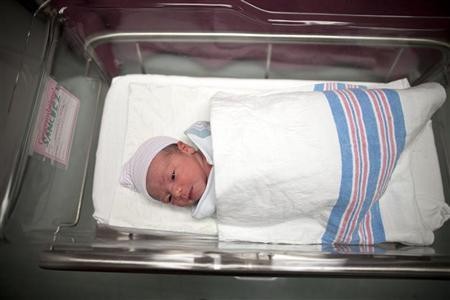Beijing is expected to have over half a million extra births in the next few years due to the new two-child policy, as reported by China Daily.
The rush of births will bring challenges to Beijing's public services, including maternal health, baby nurseries and kindergarten education, according to Beijing Municipal Commission of Health and Family Planning.
Thanks to the policy, 2.36 million couples who are permanent residents in Beijing will be eligible for a second child, the commission said on Thursday.
The policy encourages all couples in China to have two children to address problems like the shrinking workforce and the aging population. It was adopted on Jan. 1 after being approved by the National People's Congress on Dec. 1.
Nationwide around 90 million Chinese couples will be eligible for a second child under the two-child policy.
There will be an estimated 580,000 extra infants born in Beijing alone from 2017 to 2021, bringing the total number of estimated births in Beijing during that time period to around 300,000 each year, according to the commission.
The commission expects the birth rush to end by 2021.
Most of the couples that are now eligible to have a second baby under the universal two-child policy are those born after 1970. Yao Tienan, a publicity official at the Beijing Municipal Commission of Health and Family Planning, said that it is predicted that most who want a new baby will have given birth by 2021, considering their ages.
In Feb. 2014, a measure allowed couples to have a second child if at least one of them was an only child. This led to 61,000 couples applying to have a second baby in Beijing alone.
The Beijing government plans to adjust social services to handle the rush of births, such as improving the distribution of medical and educational resources, developing grassroots hospitals and encouraging hospitals to reduce C-sections in an effort to shorten the length of childbirth, said the commission.



























